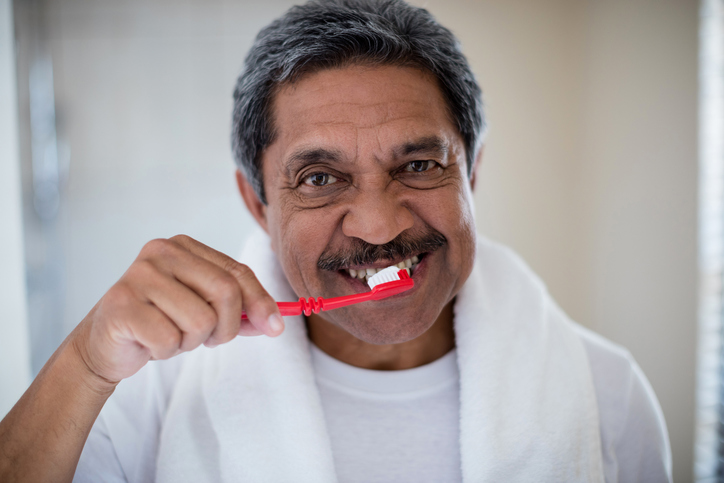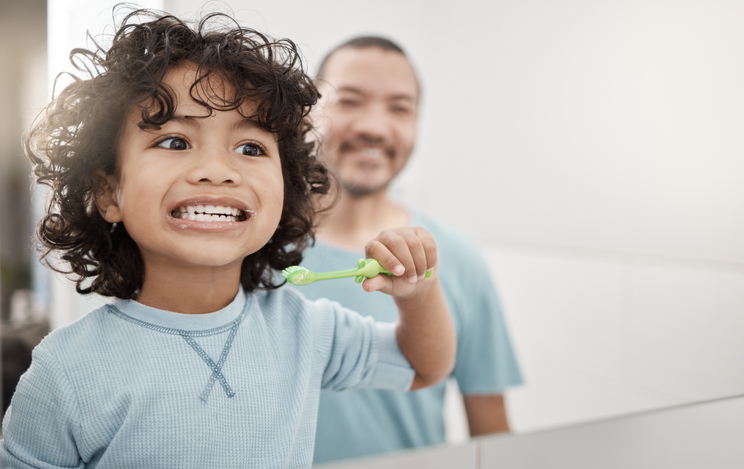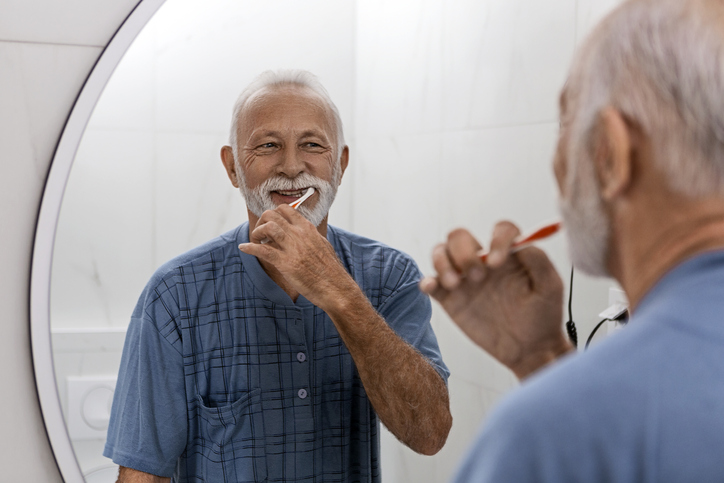Did you know? Improper brushing can lead to tooth decay and gum disease, and much worse! That’s just one of the reasons that learning to brush your teeth properly is the most impactful thing you can do for your oral health. Although it might seem like a simple task, we’ll provide you with tips on how to brush your teeth properly to maintain good oral hygiene.
Reminder: Brush Your Teeth Daily
Of course, we all know that oral hygiene is an essential part of maintaining good health. Brushing your teeth properly is one of the most important things you can do to keep your teeth and gums healthy. Concurrently, poor oral hygiene leads to many dental issues.

So, keep reading!
Toothbrushes and Their Benefits
Choosing the right toothbrush is crucial for effective brushing. There are two types of toothbrushes available: manual and electric. Manual toothbrushes are cheaper and can be found in almost any store. On the other hand, electric toothbrushes cost more but remove plaque more effectively.
When it comes to the bristles on your toothbrush, you should choose soft bristles over hard bristles. Hard bristles can damage your gums and lead to tooth sensitivity. A toothbrush with a small head can also be more effective at reaching tight spaces in your mouth. And don’t forget to be gentle with your gums, no matter the bristle you choose!
Check out the following top three toothbrushes many of our patients enjoy:
- Oral-B Pro 1000 Electric Toothbrush
- Colgate Extra Clean Toothbrush
- Philips Sonicare ProtectiveClean 4100 Electric Toothbrush
If you’re looking for more tips like the above, check out our article on cavity prevention here.
Proper Brushing Technique
Proper brushing technique is the key to keeping your teeth and gums healthy. To keep it simple and easy, here are some tips on how to brush effectively:
- Hold your toothbrush at a 45-degree angle to your gums.
- Brush all areas of your mouth, including your tongue and the roof of your mouth.
- Use gentle pressure while brushing to avoid damaging your gums.
- Brush for at least two minutes, twice a day.
Here’s a pro tip: hum yourself a little song while you brush your teeth to ensure consistency!
Do More Than Just Brush Your Teeth With Floss & Mouthwash
Flossing and mouthwash are important parts of a good oral hygiene routine. Flossing helps remove food particles and plaque from between your teeth and gums, while mouthwash helps kill bacteria and freshen your breath.

When it comes to floss, there are two types available: waxed and unwaxed. Waxed floss is easier to use and glides more easily between your teeth. Mouthwash can be antiseptic, fluoride, or simply for freshening breath.
Try the following top five floss and mouthwash products:
- Crest 3D White Luxe Glamorous White Mouthwash
- Oral-B Glide Pro-Health Advanced Floss
- Listerine Cool Mint Antiseptic Mouthwash
- Tom’s of Maine Natural Waxed Antiplaque Flat Floss
- ACT Anticavity Fluoride Mouthwash
Don’t neglect your oral health. Contact Applewood Dental today to schedule your next appointment.
Importance of Regular Dental Visits
Just like your doctor, your dentist plays a critical role in your overall health. We can spot potential problems before they become serious, A and provide you with tips on how to improve your oral hygiene routine.
At Applewood Dental, we recommend visiting us every six months for a check-up and cleaning. During your visit, we will perform a thorough examination of your teeth and gums and remove any plaque or tartar buildup.
Teaching Children to Brush Properly

I brush up and down and round and round!
Teaching children to brush properly is crucial for their oral health. Here are some tips on how to make brushing fun for kids and teach them the proper technique:
- Make brushing a fun activity by playing music or singing a song.
- Use a toothbrush with their favourite cartoon character on it, or one that lights up.
- Try brushing your teeth together in order to demonstrate good habits!
- Reward them for outstanding brushing habits.
How to Brush Your Teeth For Seniors

As we age, our oral health needs change: gums soften, teeth move, and saliva production changes. Older adults are more susceptible to dental problems such as gum disease, dry mouth, and tooth loss. To maintain good oral hygiene, seniors need to be mindful of their brushing technique and use adaptive tools if necessary.
Here’s how you can keep your pearly whites and fresh breath:
- Use a toothbrush with soft bristles and a small head.
- Brush gently to avoid damage.
- Consider using an electric toothbrush.
- Use fluoride toothpaste to strengthen teeth and prevent cavities.
- Floss every day.
- If you have trouble holding a toothbrush or reaching certain areas of your mouth, use a mouth prop or a toothbrush with an angled handle.
Now, you know exactly how to brush your teeth no matter your age or constraints!
Learn More Dental Tips with Applewood Dental
At Applewood Dental, we are committed to helping you achieve the best possible oral health. Our experienced team of dental professionals provides a comprehensive range of services, from routine cleanings to advanced procedures, all in a welcoming and comfortable environment. We understand that each patient has unique needs, and we tailor our treatments to ensure the best possible outcomes.
So, come on in and schedule an appointment with us! Or give us a call to book your consultation at 705-436-5777. Our team is here to answer your questions and help you achieve the healthy smile you deserve.
